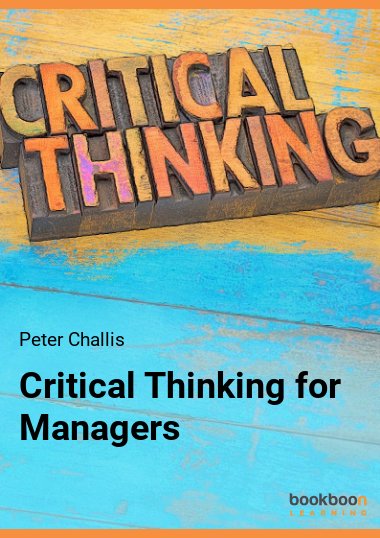Critical thinking is a tool from sociology that reveals preconceptions that can undermine logical thinking. It identifies where assumed facts are really beliefs based on a biased point of view.Creative techniques such as “blue sky” thinking can be limited by fear of challenging the assumed beliefs of the people at the top of the power hierarchy. Critical thinking is not a rebellion against power but an aid to assertive communication. Critical thinking is taught as part of university post graduate degrees in strategic management. Critical thinking is essential for logical decision making.
About the Author
Peter Challis is a researcher and author in the field of the sociology of business. He was trained as a physicist and went on to apply his scientific training to accountancy and then to strategic systems management. He was a senior civil servant before moving into local government. He worked as an adviser to the Cabinet Office and to HM Treasury. He has a master’s degree in strategic management. Taking early retirement, he became a director of several social enterprises with a focus on how business, government and civil society can work to help all in society.

